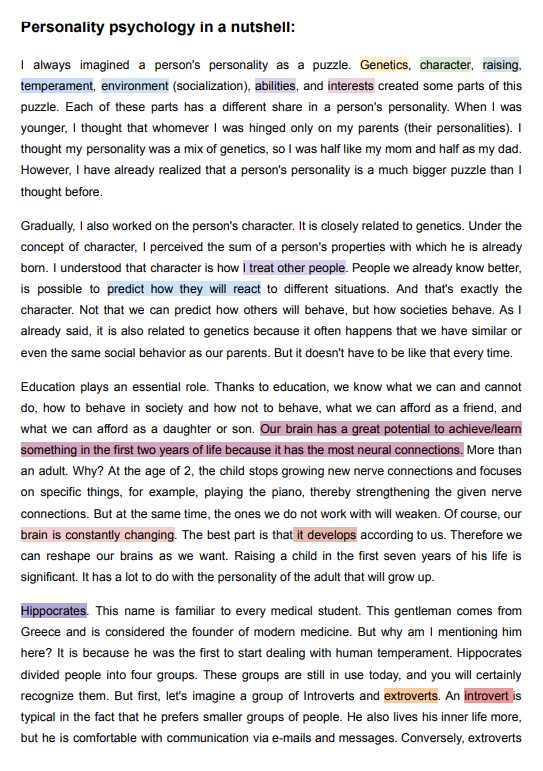Personality Psychology
Summary:
Personality psychology is a complex and multi-faceted field that attempts to understand how a person’s character, upbringing, environment, genetics, abilities, and interests combine to form their unique personality. While genetics play a crucial role in determining certain aspects of personality, character is also closely related to genetics and includes a person’s inherent qualities and behaviours. Education plays a vital role in shaping a person’s behaviour and social interactions, with early childhood development playing a significant role in forming personality. Hippocrates divided people into four temperamental categories: Sanguine, Choleric, Phlegmatic, and Melancholic. These temperaments are still in use today and can provide insight into how different people react to various situations. Socialization and the surrounding environment also shape personality, as a person adapts to fit in with their family, friends, and peers. A person’s abilities and interests also play a significant role in personality formation, with hobbies often having a profound impact on how a person sees themselves and interacts with the world. Ultimately, personality is unique to each individual and is constantly evolving throughout a person’s life.
Excerpt:
Personality Psychology
Personality psychology in a nutshell:
I always imagined a person’s personality as a puzzle. Genetics, character, raising, temperament, environment (socialization), abilities, and interests created some parts of this puzzle. Each of these parts has a different share in a person’s personality. When I was younger, I thought that whoever I was hinged only on my parents (their personalities). I thought my personality was a mix of genetics, so I was half like my mom and half like my dad. However, I have already realized that a person’s personality is a much bigger puzzle than I thought before.
Gradually, I also worked on the person’s character. It is closely related to genetics. Under the concept of character, I perceived the sum of a person’s properties with which he is already born. I understood that character is how I treat other people. People we already know better, is possible to predict how they will react to different situations. And that’s exactly the character. Not that we can predict how others will behave, but how societies behave. As I already said, it is also related to genetics because it often happens that we have similar or even the same social behaviour as our parents. But it doesn’t have to be like that every time.


Reviews